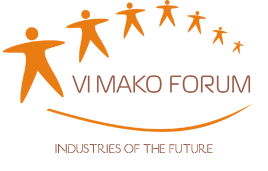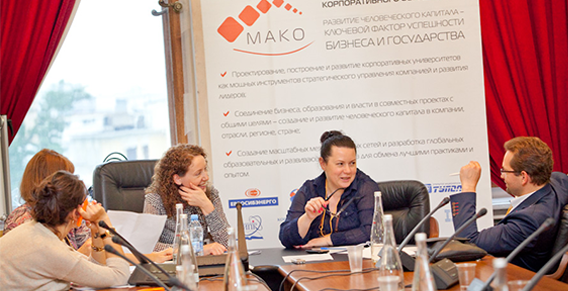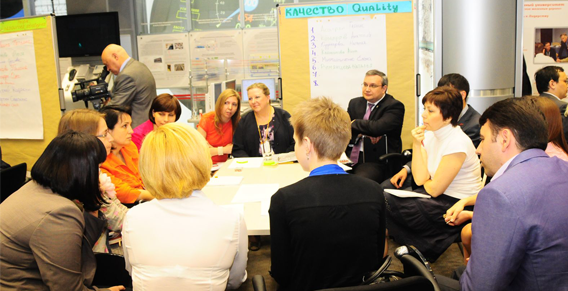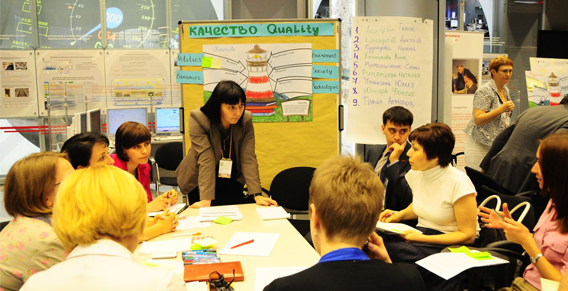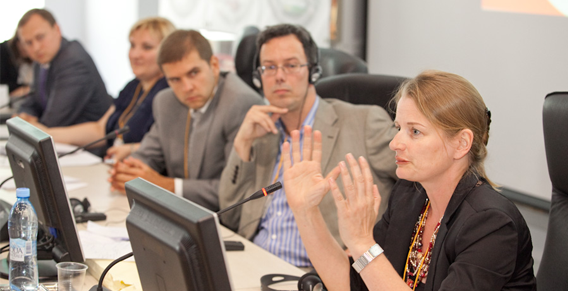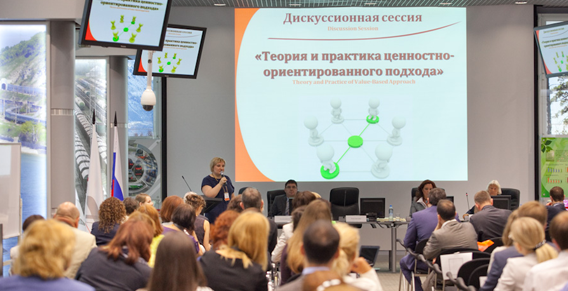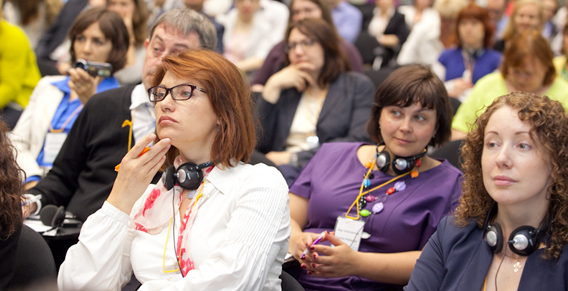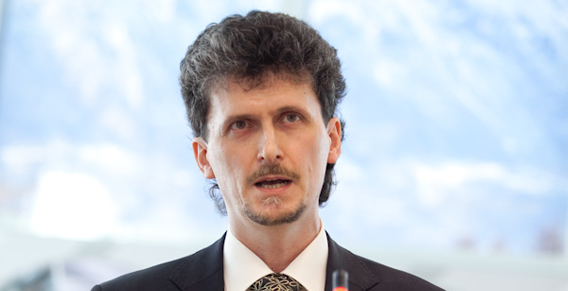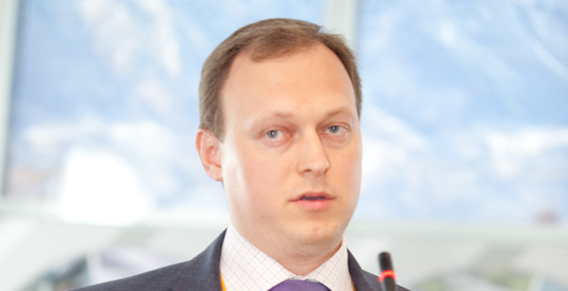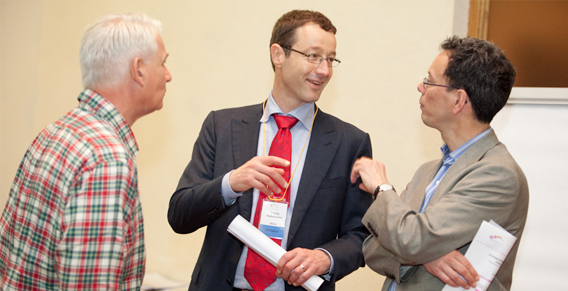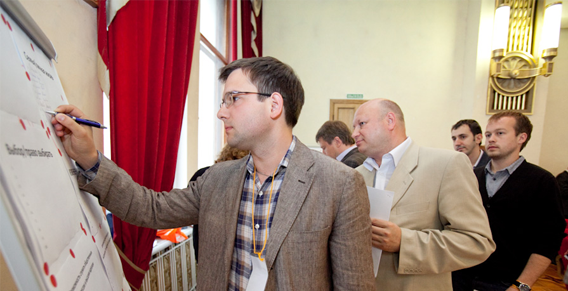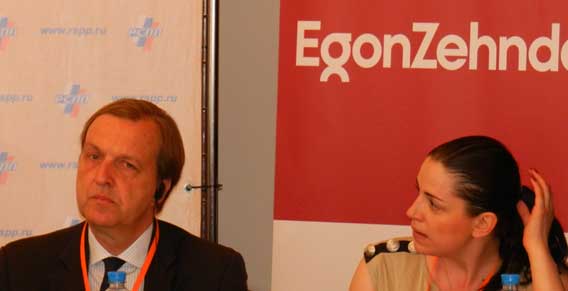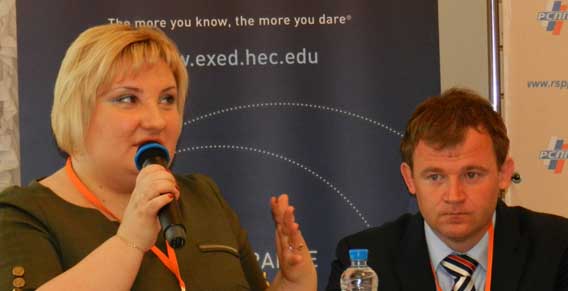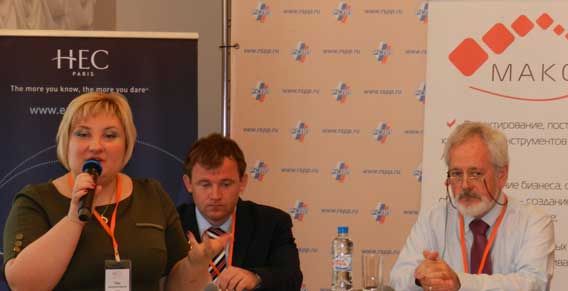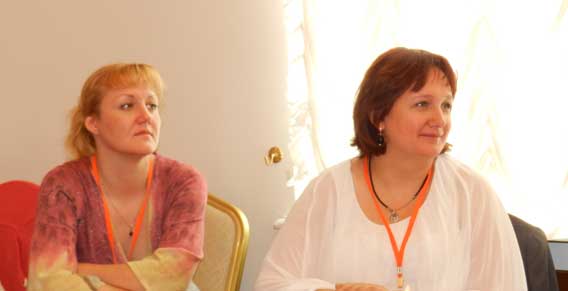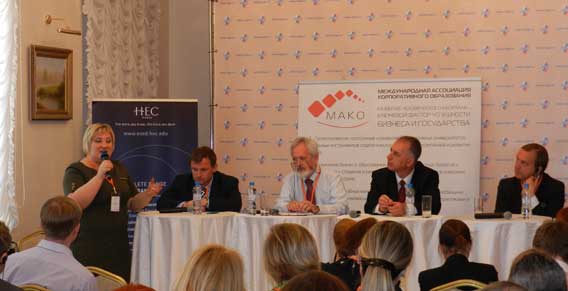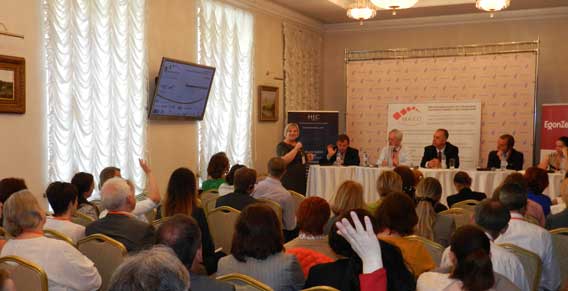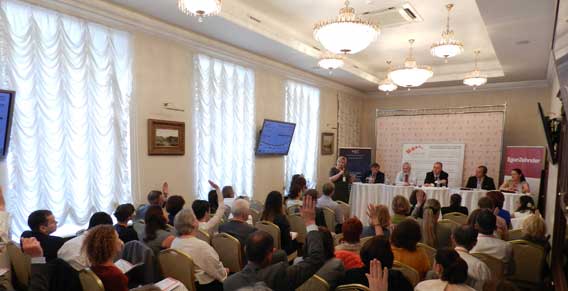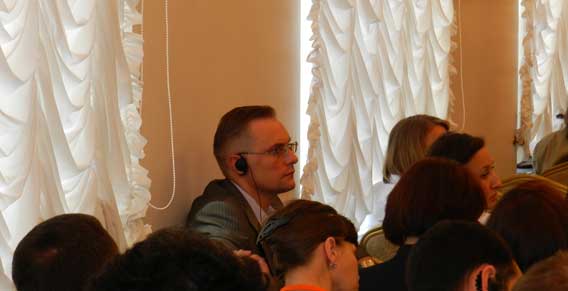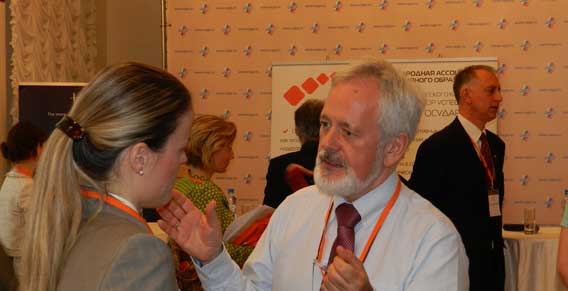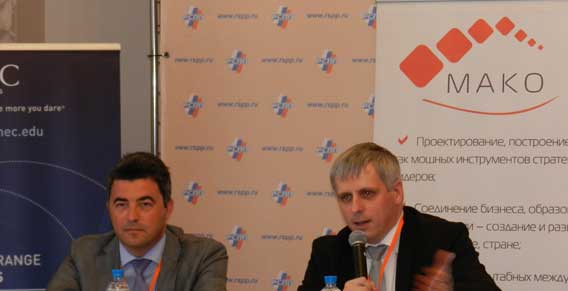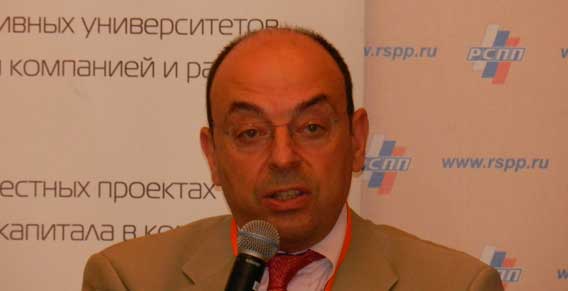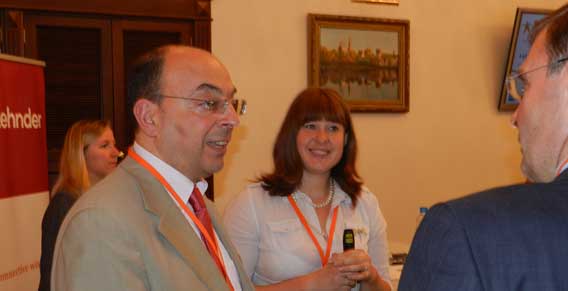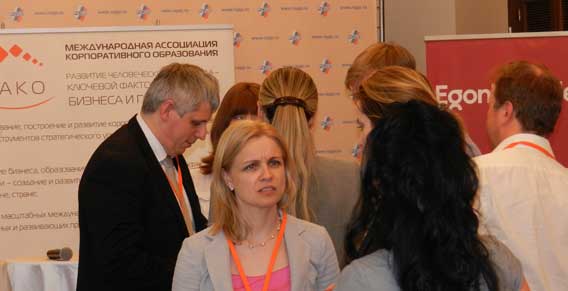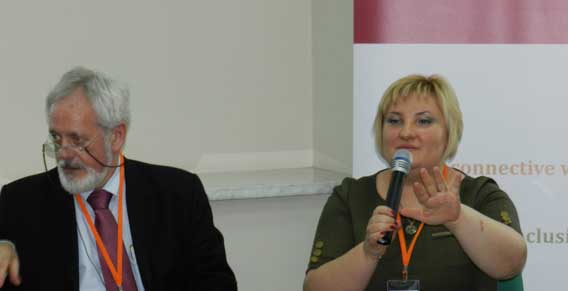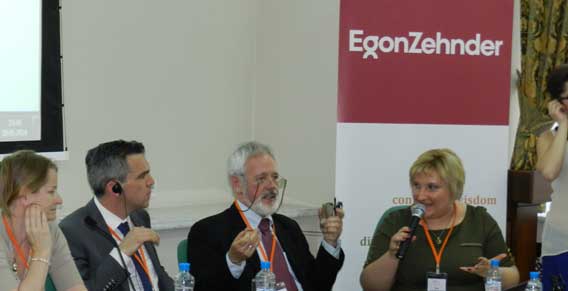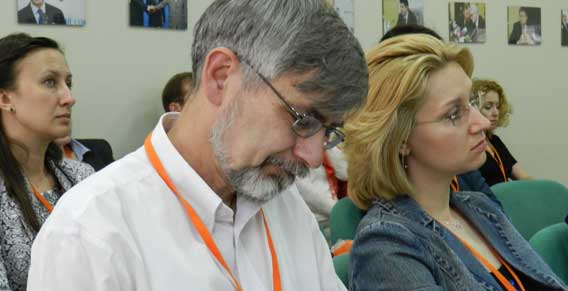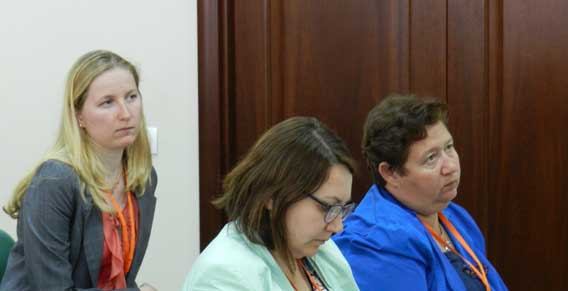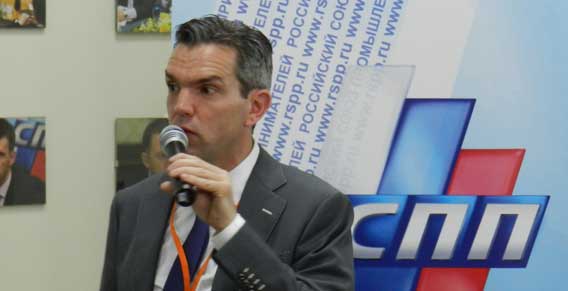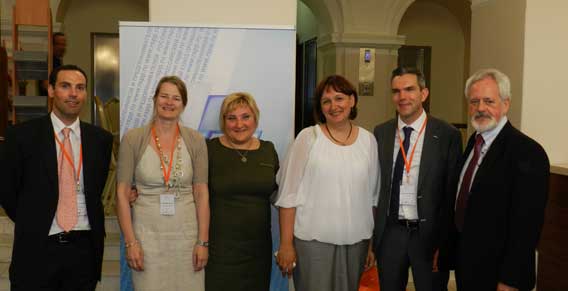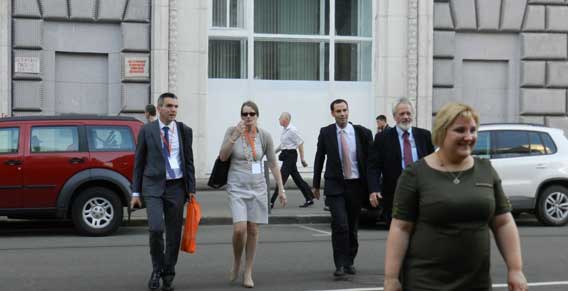Interview speakers

Roland Deiser (USA), PhD, Founder and Chairman of Executive Corporate Learning Forum (ECLF)
Do you find the topic of corporate values to be hot and relevant in the international professional community nowadays?
– Corporate Values have definitely moved center stage over the last few years. I see mainly three reasons for that: First, and most visible, we are witnessing an increasing outcry on corporate greed and irresponsible business practices, very much driven by the financial crisis and the role Wall Street played in it.
We had a similar issue about 10 years ago, when accounting fraud led to the demise of Enron and Arthur Anderson, but this time the discussion is more fundamental. It is no coincidence that the topic of the most recent European Drucker Forum was Capitalism 2.0. But this is only the ethical side — although, if you don’t address it, companies lose their license to operate in our society. Second, there is the talent equation: Less and less people — especially from the younger generation — are willing to spend their professional life for companies that do not have a purpose worth working for. Strong and authentic values have become important assets for employer branding and for attracting and keeping the best employees.
Third, values is the glue that provides identity and keeps organizations together. This becomes ever more important in our ‘flat world’ of globally networked organizations, that have to enter into sometimes complex ‘value chain clusters’ to provide their products and services. Strong values provide a strong brand and create commitment of the periphery, which in turn results in a leading role in the dynamics of the networked cluster.
How do the major western corporations work with the phenomenon of values of different generation leaders?
– This is a major challenge for many, especially as they realize that innovation and the increasingly important digital and social media literacy comes from the millennial generation. Companies like GE, for instance, have introduced reverse mentoring to capitalize on the intuitive knowledge and practice of digital natives. Senior leaders from the baby boomer generation team up with younger leaders and employees to learn from each other. In some organizations we see also a very conscious ‘demographic portfolio management’, i. e. differentiated development approaches for the various demographic segments.
In your opinion what is the main value and meaning of the Forum which will be held in Moscow in May?
– There is always great value in bringing smart and engaged people together to jointly explore and discuss key issues of leadership and organizations. By exchanging perspectives, we can all learn from each other, gain a deeper understanding of the issue, and jointly develop actionable approaches to foster values in our organizations.
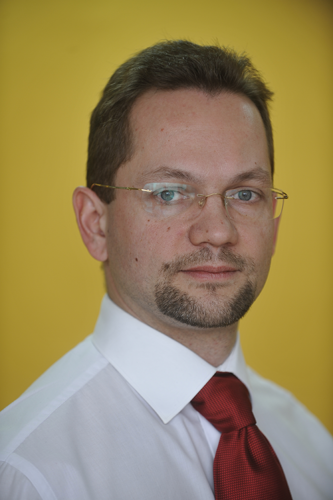
Ivan GAVRILOV, Head of T&D Department, M.video Management LLC. Personnel Board Forum Speaker
What, in your opinion, are the key values of Generation Y?
– From what I see around me, what I see in the behavior of Generation Y, the key values are Time and Interest. Time is apparent in the speed of decision-making, multitasking, urge to experience all aspects of life. The rate at which the new ways of communication assimilate into our daily routines, the rate at which we learn is rising. And it motivates young people to achieve more, and in completely different areas of life, too. Interest is expressed in the importance for Gen Y of the nature of activity in which they are involved. Interesting job (not the benefits it provides, but the tasks to perform, the activity itself), rich leisure, attractive people — basically, it's all about emotions associated with work, free time, communication.
How does one retain employees of different generations?
– We can talk a lot about particular ways of retention, but, more often than not, it’s all about acknowledgement and community/team building. Methods of retention are relevant to any generation, and the biggest issue here is not coming up with unique approaches for particular age groups, but rather the willingness of managers to apply these methods, the willingness to recognize and help meet the needs of subordinates. A bard party for Generation X and shooting a Gangnam Style video for Generation Y are instruments based on the same principles, designed to create a comfortable atmosphere of communication and common emotions, to unite people. So in this sense, the retention strategy for different generations is not about the new ways, it’s about the general direction set by the management.

Sergei KOLOBANOV, PhD, Head of GreenWell International Centre (Austria)
What are the key issues of corporate learning today?
– In my opinion, the source of the major issues of corporate education is misinterpretation of its role. After all, it is not intended to fill the gaps in training or re-train the employees. (Who doesn’t remember the words of wisdom for the new young recruits: "Forget everything you’ve learned at the university…"?).
– Corporate education has two objectives. First, to bridge the gap between the increasing demand for expertise of investors/management of a specific enterprise and employees’ actual competence, their ability to perform tasks efficiently. And, secondly, to impart corporate values, culture of the company or industry. The success of any business always depends not so much on technology as on carriers of specific professional qualities, skills, and trade secrets. And this problem cannot be solved by a simple set of seminars and E-learning programs ‘for everyone’ today’s market is flooded by. Each employee of a company has its own role, his own responsibilities, and his corporate education should be, above all, target-specific, aimed at trying to help (to help, not to teach) a person to eliminate any kind of gap between the expectations placed on his results and the level of competence. Then he will not perceive his corporate training as a kind of additional benefit, a way to broaden their professional erudition at the company's expense, and will on par with the company co-invest in his corporate education, recognizing the positive outcome (e. g., financial) of the training.
So, you doubt the efficiency of E-learning and don’t quite trust the certified programs?
– I doubt the existence of universal solutions for specific tasks. Of course, E-Learning and other forms of ‘external’ or distance learning, short-term programs at universities can be very useful for specialists seeking self-improvement and skill boost. But this expansion of expertise must be, above all, the aspiration of the specialist in question, and the company should encourage it. Corporate education’s aim is somewhat different and more specific.
And how would you define GreenWell’s role in the system of corporate education?
– GreenWell is a very convenient facilitator for corporate education programs. GreenWell is a fitness club and spa for business. Yes, we have 30 comfortable apartments, modern spaces for meetings and seminars, both indoor and outdoor, our own pub, a gym, and 6.5 acres of fields and forests — for our guests it’s a perfect escape from routine in order to devote themselves to learning. But do not we just offer a venue or just provide ‘one size fits all’ trainings. We offer companies and corporate universities to organize training sessions in our centre. For each group we, together with our clients, design personalized programs, select the active elements and, where necessary, arrange meetings and exchange of experience with experts from Austria, Germany or UK. And from this point of view, GreenWell is not an alternative to corporate universities or business schools, but their partner.
You’ve decided to participate in Corporate Values: The Experience of the Leaders forum. What are your expectations? What are, in your opinion, the benefits of the event?
– We work closely with many countries in Central and Eastern Europe, so, naturally, it’s important for us to learn more about Russian corporate education market and problems it faces. And, of course, we hope to find partners interested in co-operation with our centre and establishing long-term and mutually beneficial relations.
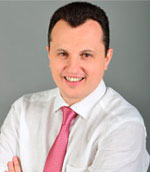
Andrey ILIOPULO, President, Novard Group of Companies:
‘We all know that business is, first and foremost, about people, and people are mostly interested in financial benefits. Nevertheless, when the aim of a company is to develop into a sustainable business, it needs a more substantial basis — the unity of values, views and aspirations of all its employees.
‘Novard Group of Companies consists of several versatile business units, and each of them has its own features, its own microclimate. But we all share common values and apply them in communications with clients, partners and our human resources.
‘Business ethics of our outstanding entrepreneurs circa beginning of the 20th century, — those who developed key industrial sectors (Prokhorov, Ryabushinsky, Tretiakov, Botkin etc.), — could be described as follows: Profit is above all, but honor is above profit. And these views are characteristic to Russian society: in our country moral values enable development. And when each of us does something useful and important, accomplishes one good deed per day even if it’s just a kind word or a smile, when each of us acts and thinks responsibly, it will be the first step towards the cultural and spiritual renaissance in Russia.
We will be able to build economic system regulated by values, to empower fair competition, to eradicate corruption, to revive work ethic and respect for labor, to strengthen solidarity between generations and different social groups. And then we’ll get a strong Russia, we’ll get a healthy society in which moral and ethical guidelines are not be blurred, in which people’s interests will be the priority, and business will be the locomotive of not only economic, but also spiritual development.’

Dr Konstantin Korotov (Germany), Professor, Director of the Center for Leadership Development Research, ESMT
Do you find the topic of corporate values to be hot and relevant in the international professional community today?
– This is an extremely topical issue in the modern business world. In large efficiency-focused organizations the decision making process is often shared between various levels of the company’s hierarchy. Since it’s impossible to control employees’ every step, organizations have to trust their people. The latter require certain guidelines on what will and won’t be accepted in the company and where a certain freedom of choice is allowed. This is where corporate values come into play.
Values of different generations of leaders… How do large international corporations deal with this issue today?
– Western companies are once again learning to operate in a situation where workforce is comprised of people from different generations and of different values. Since people tend to work longer these days, the likelihood of misunderstanding between employees of various generations increases. Thus it is of utmost importance to help both leaders and employees navigate through value-based expectations of employees, to facilitate a dialog between various generations and to stimulate knowledge sharing between employees of different age groups. This at least requires putting the issue on the top management’s agenda and implementing it in the training and development programs.
Representatives of different generations, who have to work together in a ‘superior-subordinate’ context, often require mentoring to help them find ways for productive cooperation without suppressing each other’s values. Companies also have to look for new ways of organizing work time and space to create comfortable environment for employees with various needs.
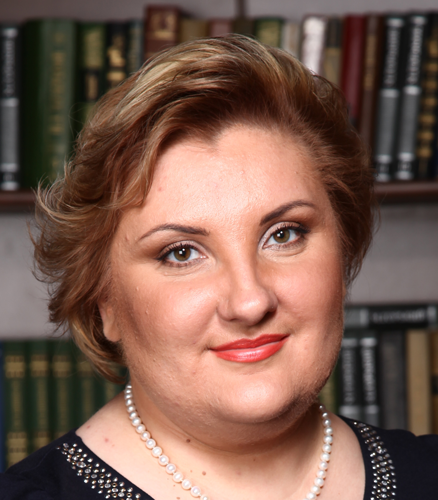
Olga GOLYSHENKOVA, CEO, MAKO Chairman, Stirring Committee of the Forum
What is the importance of corporate values for professional community?
– It’s important to understand that International Association for Corporate Education is, on the one hand, a unique professional community of separate individuals with high expert reputation and, on the other hand, it’s a managing office for joint initiatives of the largest Russian and global corporations, authorities and educational institutions that are aimed not only at staff training and development but also at forming certain values and attitudes — personal, corporate, industrial, professional, national, global.
This is why the topic of values is one of the key themes of our work. Being in contact with a number of national and global corporations, we can state that corporate values set by influential players in the market are filtering into the lives of individuals and the society in general, strongly influencing personal choice of millions.
We are living in the age of transnational corporations and global businesses and we can see that Russia is living in the era of state corporations and natural monopolies of national importance. It would certainly be interesting to analyze and understand how values of global corporations co-exist with the values of national corporations, what kind of ‘chemical reaction’ are they causing together with personal values of different generations — X, Y, Z, and what practical value would the results of this research contain. In other words, it’s not only fascinating but absolutely essential to find answers to the questions of conflict and interaction of values in the modern business world and society, and find those management and HR tools, which are necessary for effective work in the modern day context.
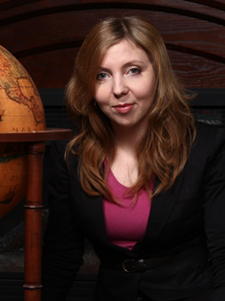
Natalia MAYER, Director of International Programmes, MAKO
What are the main results of the Forum 2012?
– Last year’s forum became the first international platform of experience exchange for heads of corporate universities in Russia. We received support from the largest Russian and international companies, such as Rosatom, Kamaz, RusHydro, VTB, Gazprom, ArcelorMittal, DTEK and also Russian Railways who became the general partner of the Forum. Besides, the event gained support from the Chamber of Commerce and Industry of the Russian Federation and Moscow State Department of Education.
Geography-wise the Forum not only included various regions of Russia, but also neighboring and foreign countries. More than 80 participants worked together with the Russian and international speakers under the supervision of 10 moderators on identifying trends and drivers of development of corporate education both in Russia and abroad. In the course of a two-day conference we managed to realize custom-made interactive formats which guaranteed effective communication and analytical experience for each participant, such as mind mapping, reflections through the tools of the Playback theatre, business story writing in the format of a fairy-tale, legend or myth.
Last year we made the first attempt to start a yearly platform for exchange of experience between corporate education specialists, HR managers and corporate leaders. We are certain that our platform will grow year by year both qualitatively and quantitatively.
What are the innovative aspects of the Forum 2013?
– We will talk about corporate and personal values — a hot topic for both professional and civil society of Russia. The best way to ‘diagnose’ values of different generations is to let their representatives meet on neutral territory to freely express their personal qualities in business problem solving, thus identifying common principles of interaction of staff from different generations, experience and positions within the company. This is exactly what will happen at the Forum 2013. Various hypotheses on values of different generations, supported by statistical FOM research will become the basis for group work involving representatives of generations X, Y and Z.
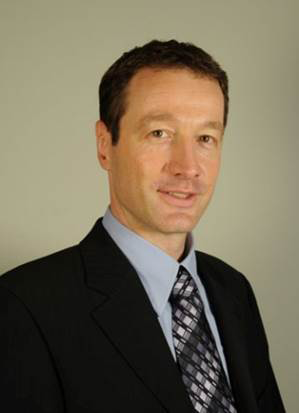
Dr. Martijn F.L. Rademakers (Netherlands), Board member of the Dutch Foundation for Corporate Universities (Netherlands)
Do you find the topic of corporate values to be hot and relevant in the international professional community nowadays?
– Corporate values are very relevant, and often paid attention to as part of the corporate mission (including purpose of the organization, norms, values, and beliefs). It is seen as a ‘soft control’ for the corporation. People can fake rules, but can’t fake values.
How do the major western corporations work with the phenomenon "Values of different generation leaders"?
– Western corporations consider differences between generations of leaders (and those who are led!) as a big challenge. Concepts as ‘generation Y’ (the new generation of young, independent and highly computer literate and social media-driven people) are being used to shape the discussion about differences between generation in corporate reality. One of the ways to cope with different values of different leaders, is for leaders to broaden their leadership repertoire: being able to mobilize a diverse group of people.
In your opinion what is the main value and meaning of the corporate universities forum which will be held in Moscow in May?
– Discussions on first-hand knowledge basis about the theory and practice of corporate universities in different companies and national settings is a powerful way to learn from each other about this important topic. It means that Moscow is connected with the worldwide corporate university community.
